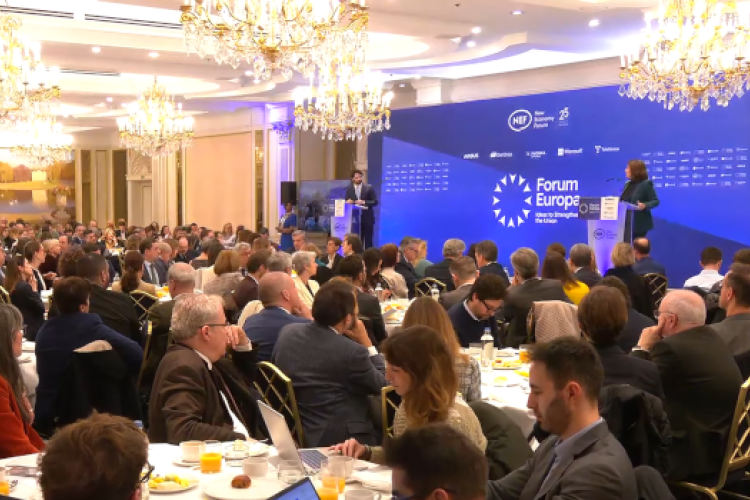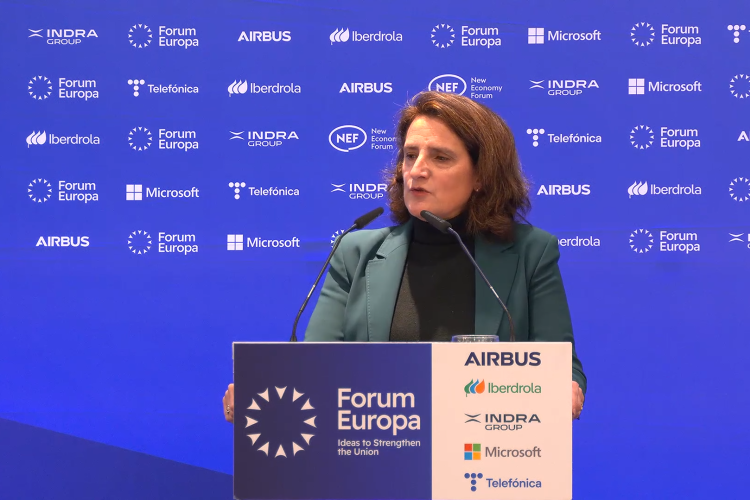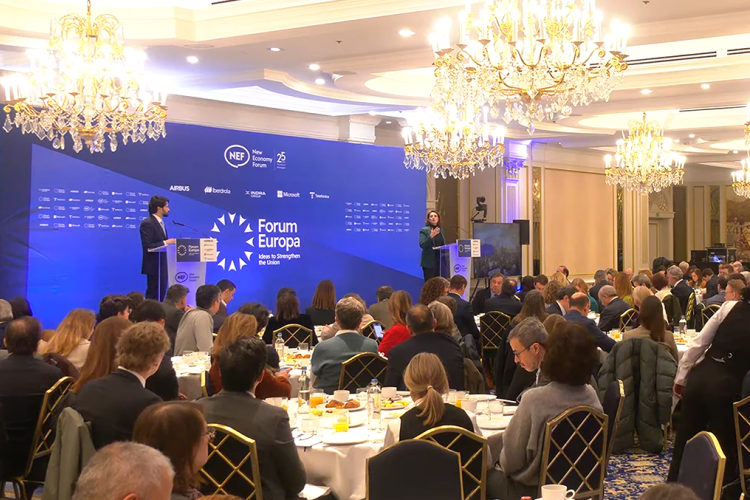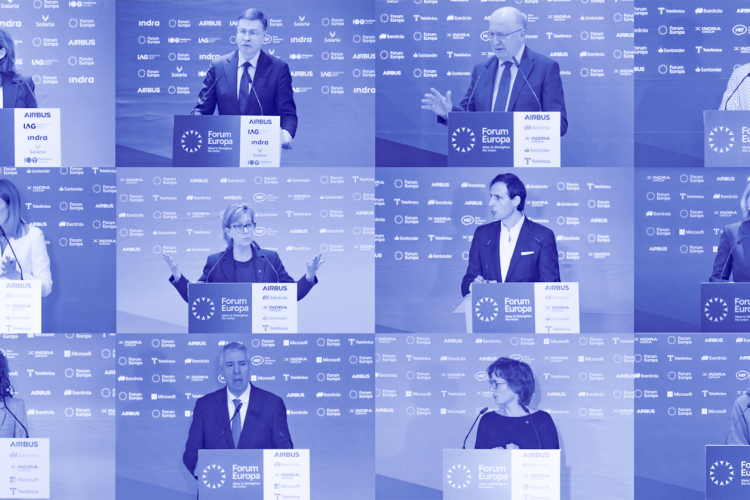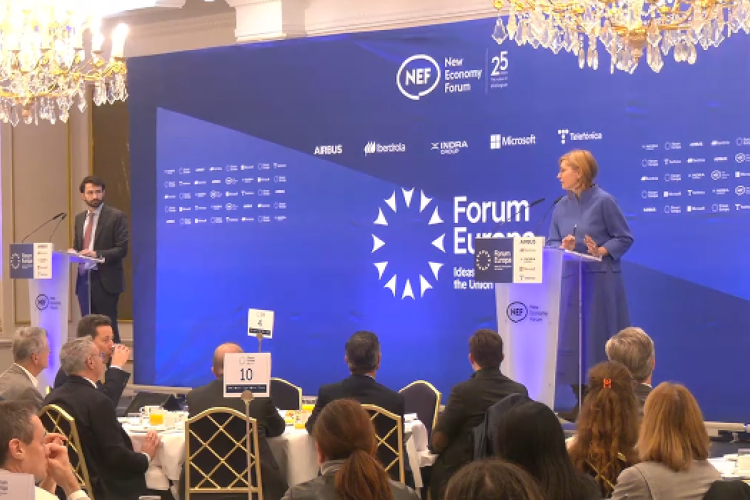The Vicepresident of the European Commission for a Clean, Just and Competitive Transition, Teresa Ribera, argued this Tuesday at the Forum Europa in Brussels that force should be used based on pre-agreed standards and not depend on the morality of any individual, a statement she made when asked about the removal of Nicolás Maduro in Venezuela on the orders of US President Donald Trump.
Ribera made this statement at a briefing in the european capital organised by New Economy Forum, where the Spanish commissioner was introduced by Margrethe Vestager, former EU EVP and Commissioner for Competition.


